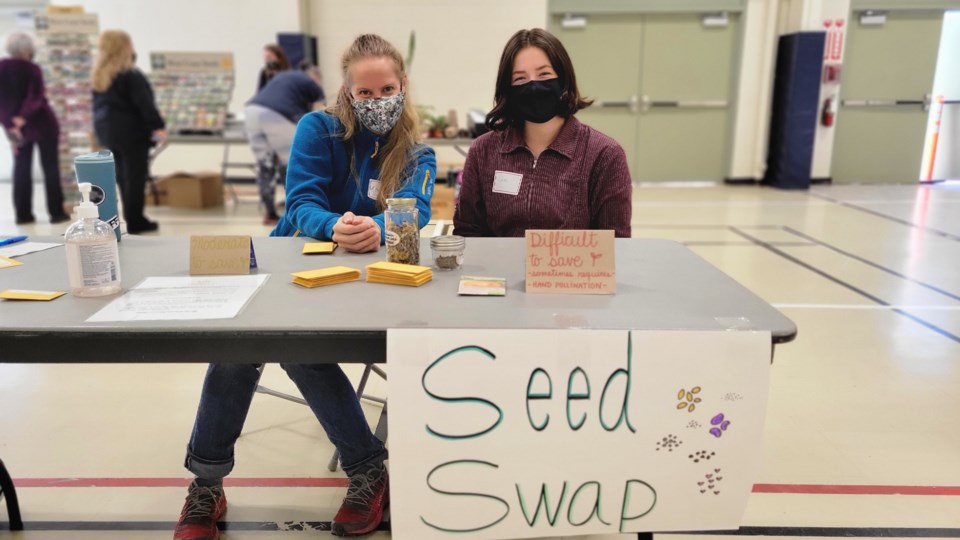The �鶹�����seed library is for everyone — from experienced gardeners to gardening novices — who are looking for seeds to grow in their garden.
The same can be said for the upcoming Seedy Saturday event.
Feb. 25 is the annual ‘,’ previously known as ‘Seedy Sunday.’
The event will be held at the �鶹�����Public Library on Saturday from 1 to 4 p.m.
This event is free and meant for the whole family.
Seedy Saturday is about seed education, seed connection, and connecting with other people, according to Marie-ève Boutin, seed library co-ordinator for �鶹�����CAN, which puts on the event.
Folks can pick up, or exchange seeds and information will be shared on seed saving and how the seed library works.
There will also be a master gardener on hand to answer questions.
Seedy Saturday is also an opportunity to learn about the �鶹�����CAN gardening workshops that are being brought back this Spring. There will be a workshop held every month. The workshops are taught by experts and are focused on numerous different skills, such as soil health, and medicinal and culinary herb gardens.
�鶹�����has a seed library?
The �鶹�����seed library was started by Michi Hunter in 2017 with the goal to make seeds available to the �鶹�����community.
To be a member of the �鶹�����seed library, located in a small cabinent inside the �鶹�����Public Library, there is an annual $5 fee. Once you are a member, you may access and take the seeds whenever you like. You are encouraged to bring the seeds back the next year, once your plants have grown and produced seeds of their own.
Hopefully, once the seeds in the library have grown for a few generations in this area, they will be a “little bit more drought-tolerant, heat-tolerant, or disease tolerant,’ Boutin said.
As well as being donated by growers, seeds are donated by companies.
“[Companies] give us seeds for our school programs and for our guidance program. We use some of those in the seed library as well,” Boutin said.
You will find radishes, carrots, beets, kale, cauliflower, broccoli, and other “staple” seeds at the library. “We have a little bit of all main crop species that you would grow in a backyard garden,” Boutin said.
Every once in a while, there will be odd seeds found in the library, such as amaranth or artichoke. According to Boutin, “someone once dropped off 1,000 year old tobacco seeds.”
For more information, go to .




